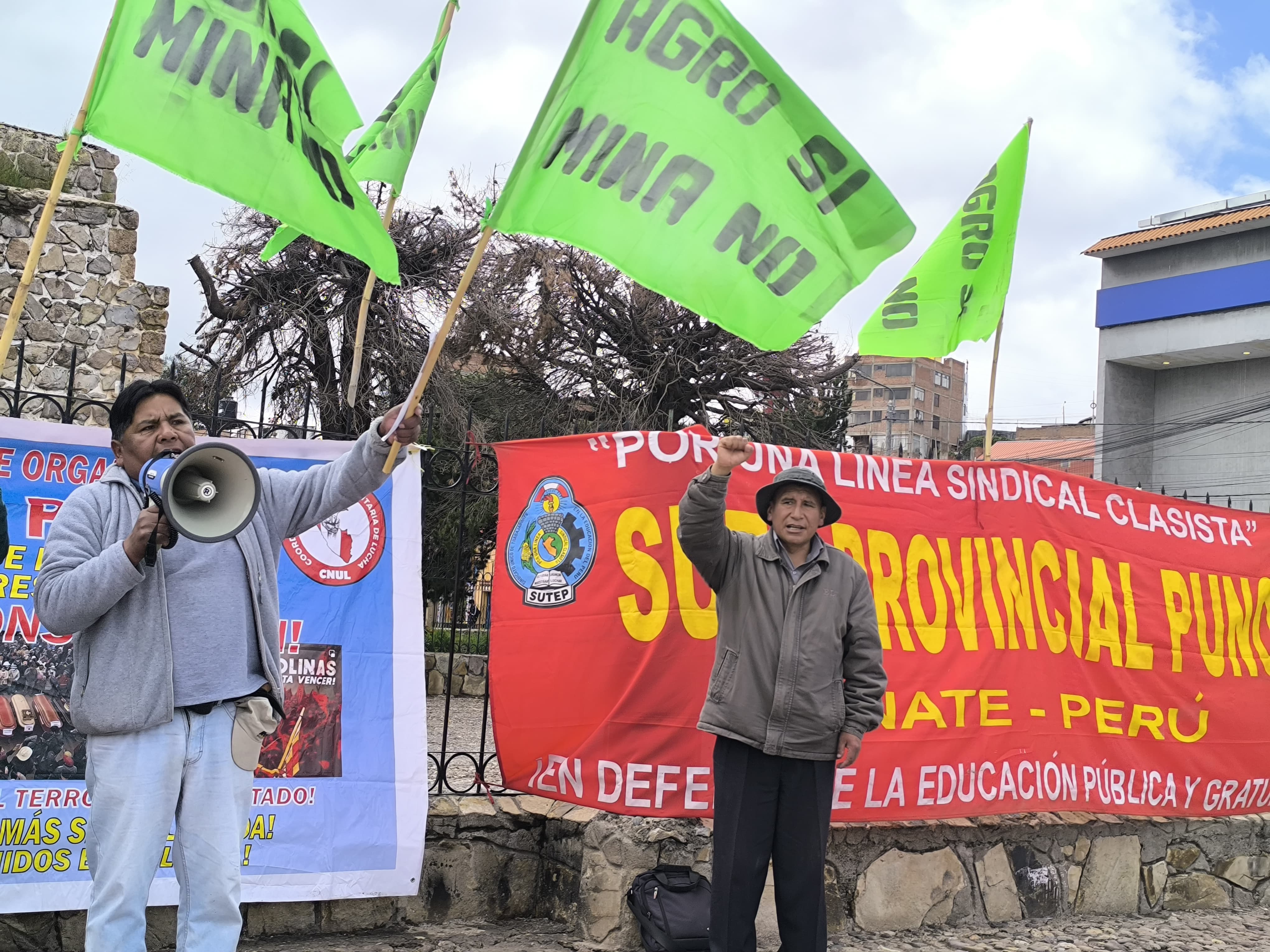
The population of the Tambo Valley and the leaders of the Southern region began an indefinite strike against the Tía María Mining Project. About 80 people in the province of Islay (Arequipa) mobilized through the streets of Cocachacra, in front of the police station and the District Municipality, demanding that local authorities join their cause. His presence was enough for the office of Southern Copper remained closed.
“Agro yes, Mina No”, was the motto that was read in the green flags placed on the roofs of the houses.
The mobilization brought together farmers, fishermen, civil construction workers and residents of the sector. At noon, the Protestants went to the Costanera Norte highway, in the Boquerón sector of the District of Dean Valdivia and blocked the road leaving heavy load trucks and interprovincial buses stranded.
TIA MARÍA Y COBADA PROJECT: Why are they protest?
Leaders of social organizations and members of the Unitary Union of Education Workers (SUTEP), they mobilized by the different arteries of the province of San Román, in support of indefinite unemployment against Minera Aunt Maria and La Capada.
“The Tambo Valley has been rejecting this project for 15 years and the government continues to ignore the request of the population. The company insists on imposing it without consulting people. Given this situation, the protest is fair, and that is why I am here,” he said Jaime Quito, congressman for Arequipa, as the Republic could verify in the place of events.
Lucio Calla Callata, leader of the Collegiate Committee of Organizations of the 13 Provinces, warned that if not reaching consensus and if there is repression of the central level, they will evaluate an indefinite protest executed by the Macro Southern region that would begin As of February 27.
“The support will be with mobilizations and marches, but if things get worse and there is some repression as the dictatorship against the people has done, we, a delegation will be traveling to the Tambo Valley and we will also implement an indefinite strike, That will depend on how those things are taken, we demand from here that the problem solves, “Calla added.
On the other hand, leader Willy Ito Mamani said that if the mining project was completed, the Puno region would suffer serious food effects, since the Tambo Valley is one of the most important suppliers that the region has.
“We do not agree with the imposition present by Dina’s dictatorship of being able to loot natural resources far from improving agricultural production in the south of the country. The Tambo Valley feeds Puno and with the project a food crisis would be entered (…).
In the last hours of the day, the National Federation of Potable Water and Sewerage Workers of the Perủ (Fentap) published a statement where they affirm that they add to the legitimate demand of the population, which demands respect for their right to a healthy environment and the protection of water resources in the regionfundamental for the agriculture and life of thousands of families.
“We reject any attempt to impose these mining projects that represent a serious threat to the Tambo Valley and for the sustainability of their agricultural economy,” he reads.
Why do they protest against the Tia María project?
As José de Echave, former Minister of Environmental Management, explained in Cooperation, the Mexican capital company Southern Copper Corporation He had presented a first environmental impact study (EIA) that was reviewed and literally destroyed by a United Nations agency. In that sense, the EIA was declared inadmissible and the company had to withdraw it.
Aunt María’s second chapter occurred two years later: in December 2013 a new EIA was presented, which was finally approved in August 2014, during the Humala government, which caused a second outbreak.
So far, between 2011 and 2014, the strikes left a balance of seven deaths.
Finally, in July 2019, during the management of Vizcarra, the construction license was approved, leaving everything expedited for the start of the project. However, in the midst of social mobilizations in the area, the Mining Council decided to suspend the construction license.
Today Southern Copper He maintains that the opposition to the project has decreased, but the protests continue. In 2023, there was a rolling march in July and a 72 -hour strike in October, reflecting that rejection still persists in the Tambo Valley.
With information from Leonela Aquino and Almendra Ruesta / URPI LR
Source: Larepublica
Alia is a professional author and journalist, working at 247 news agency. She writes on various topics from economy news to general interest pieces, providing readers with relevant and informative content. With years of experience, she brings a unique perspective and in-depth analysis to her work.












